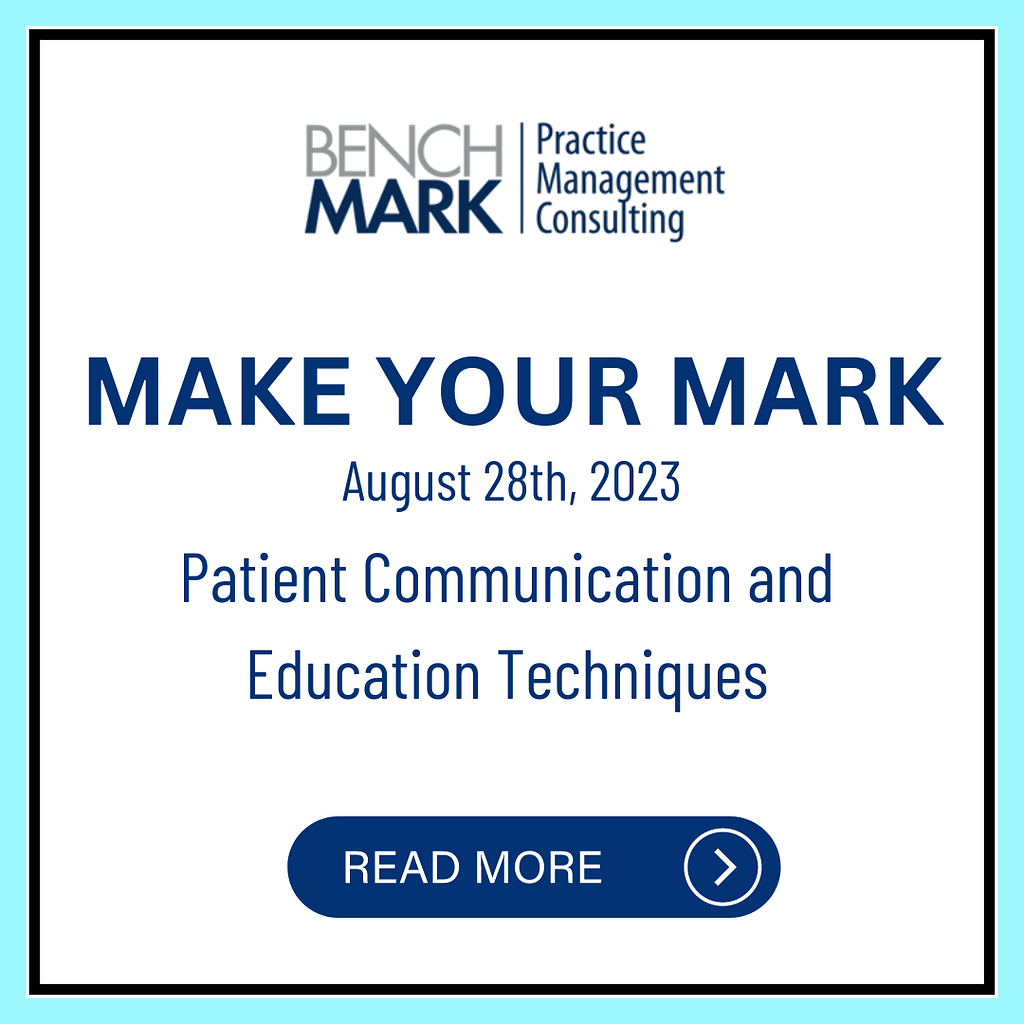Effective communication and patient education are crucial aspects of running a successful dental practice. Dentists and dental professionals need to communicate clearly and empathetically with their patients to build trust and ensure they understand their oral health conditions and treatment options.We’ve been discussing this theme a lot lately and fro different angels, however this is a straight shot of novacaine.
Here are 10 key points that dental practices should focus on:
Improving Communication Skills: Dental professionals should continuously work on their communication skills, including active listening, empathy, and clear explanation of complex dental terms. Good communication can help alleviate patient anxiety and improve treatment acceptance rates.
Visual Aids and Technology: Utilizing visual aids such as radiographs, videos, and intraoral cameras can help dentists explain dental conditions and treatment procedures more effectively. Technology like chairside monitors or 3D models can enhance patient education and involvement in treatment planning.
Preventive Oral Health Education: Educating patients on the importance of preventive oral care practices, such as proper brushing, flossing, and diet, can significantly impact their oral health outcomes and reduce the need for extensive dental work.
Now, if you’ve been a dentist for one day, ever gone to the dentist as a patient, or simply heard someone talking about dentistry at some point in your life, you know the “key 3” elements of dentistry: brushing, flossing, and diet. So why include this? (I may break this down in future articles too, so keep a lookout)
The three biggest reasons are that patients need to be reminded. We know this. Secondly, it feeds into our subconscious that oral health is easy, and attainable by virtually anyone. Thirdly, it reminds us as professionals to keep it simple. Our patients don’t necessarily need to know they have Amelogenesis Imperfecta, but that their enamel formation was off.
Treatment Options and Alternatives: Patients should be presented with various treatment options and their pros and cons, along with potential alternatives if applicable. This empowers patients to make informed decisions about their oral health.
Addressing Dental Anxiety: Dental anxiety is a common concern for many patients. Dental practices can benefit from learning techniques to manage and address patient anxiety, such as relaxation techniques or the use of nitrous oxide.
Informed Consent: Dental practices should focus on obtaining informed consent from patients before performing any dental procedure. This includes explaining the treatment plan, potential risks, and expected outcomes.
Post-Treatment Care and Follow-up: Providing clear instructions for post-treatment care and scheduling appropriate follow-up appointments ensures patients maintain their oral health after receiving dental treatments.
Cultural Competency: Understanding and respecting diverse cultural backgrounds and individual needs can help dental practices create a more inclusive and patient-centered environment.
Digital Marketing and Online Presence: Emphasizing the importance of maintaining a positive online presence and engaging in digital marketing strategies can help dental practices attract and retain patients in today’s digital age.
Continuing Education for Staff: Regularly updating the dental team’s knowledge through continuing education programs ensures that they stay current with the latest developments in dental practices and patient communication techniques.
By investing in these subjects and continually striving to improve patient communication and education, dental practices can enhance patient satisfaction, loyalty, and overall success.




